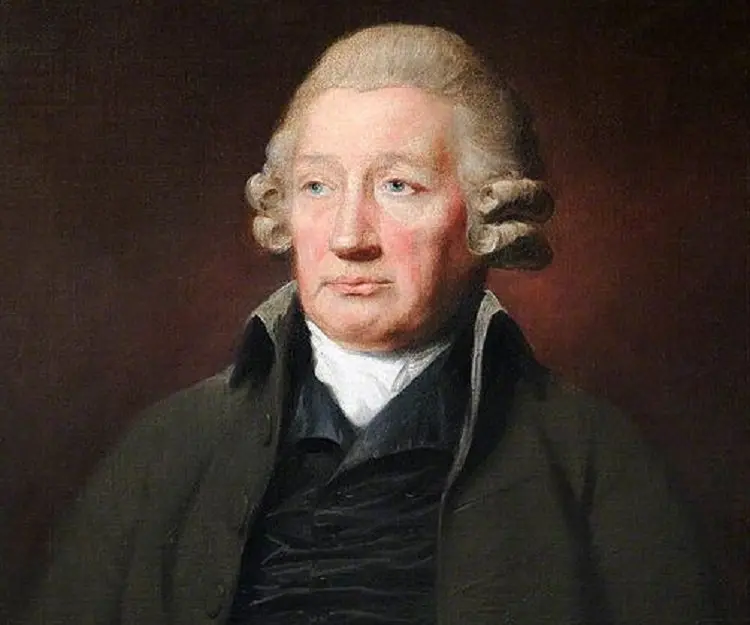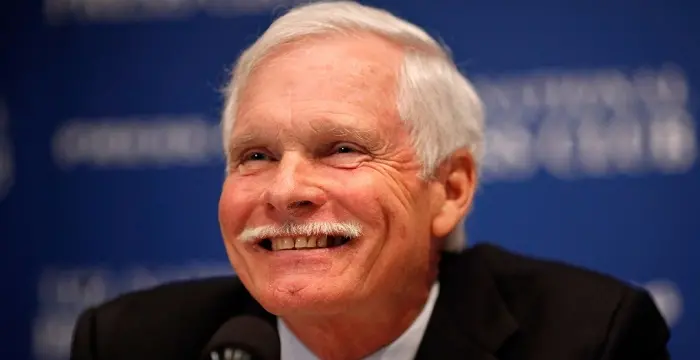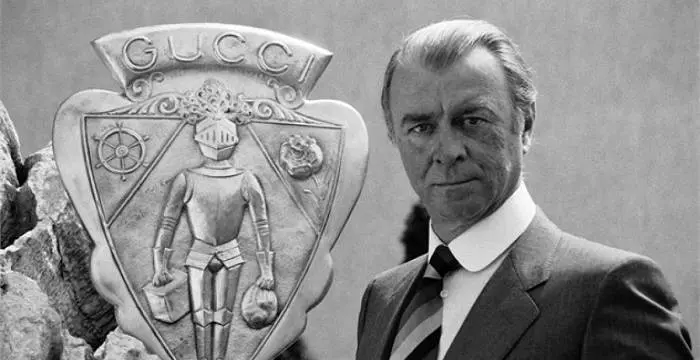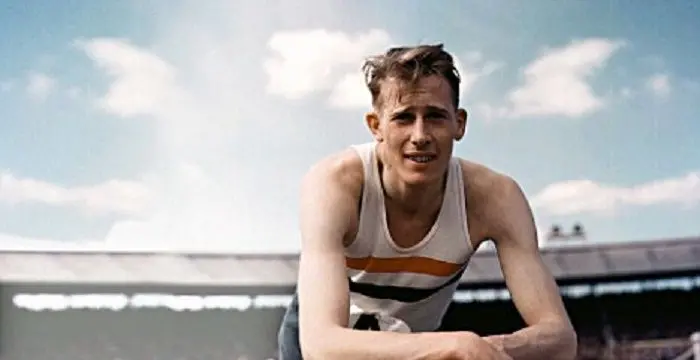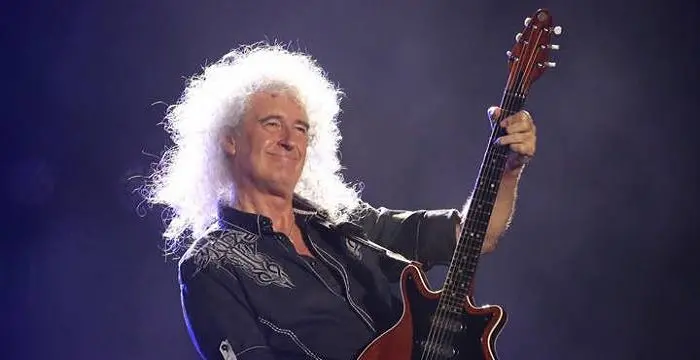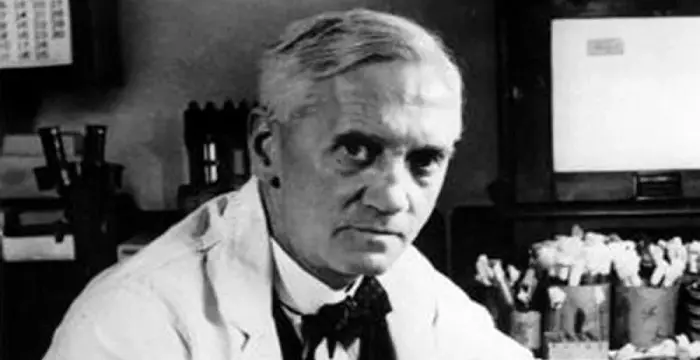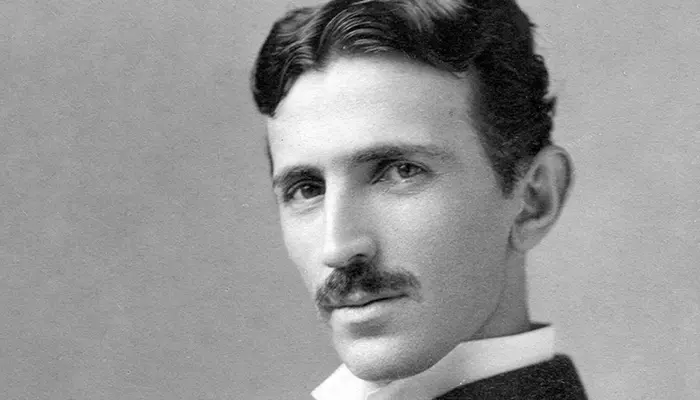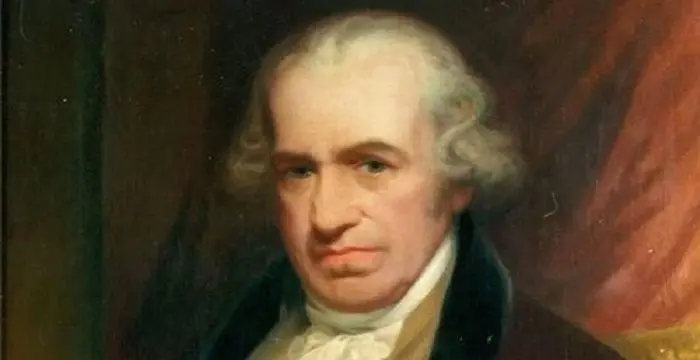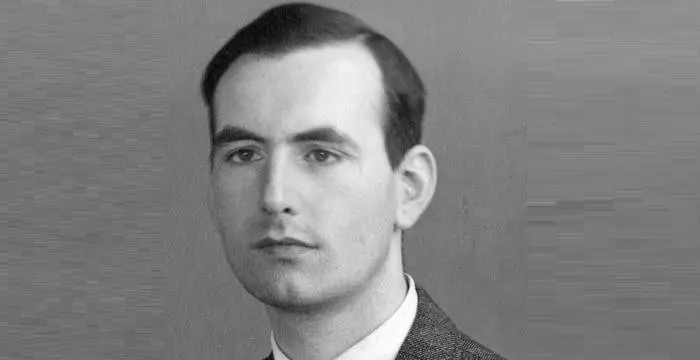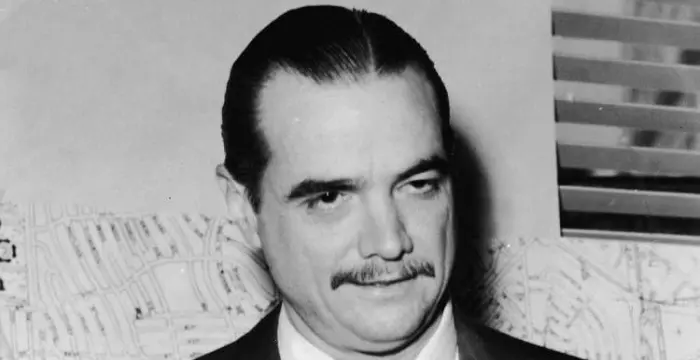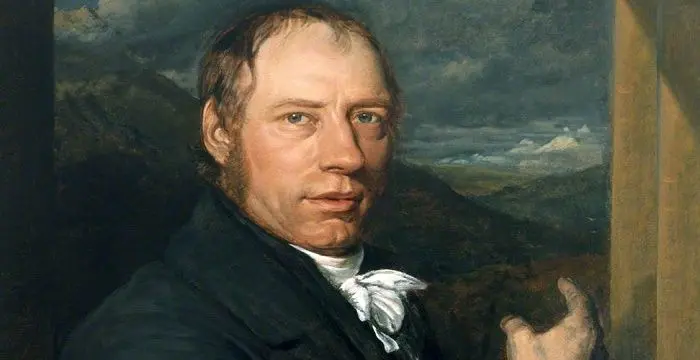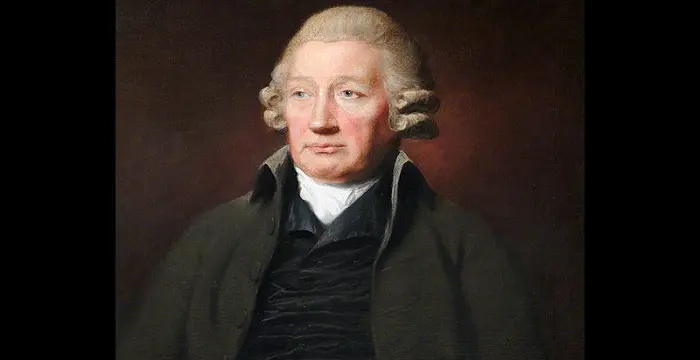
John Wilkinson - Pioneer in Cast Iron Manufacturing, Facts and Childhood
John Wilkinson's Personal Details
John Wilkinson was a British entrepreneur who pioneered the manufacture of cast iron’
| Information | Detail |
|---|---|
| Birthday | 1728 |
| Died on | July 14, 1808 |
| Nationality | British |
| Famous | Philanthropists, Imperial College London, Business People, Inventors & Discoverers, Pioneer in Cast Iron Manufacturing |
| City/State | Connecticut |
| Universities |
|
| Notable Alumnis |
|
| Birth Place | Bridgefoot |
| Gender | Male |
| Born in | Bridgefoot |
| Famous as | Pioneer in cast iron manufacturing |
| Died at Age | 80 |
John Wilkinson's photo
Who is John Wilkinson?
John Wilkinson was a British entrepreneur who pioneered the manufacture of cast iron and found its novel applications during the ‘Industrial Revolution’. Born in England to a part-time ironworker and inventor, John was an intelligent child with a creative mind who was exposed to iron-furnace work at a young age. After completing his early education, he became a partner with his father in iron business and moved to Staffordshire where he built Bilston’s first iron furnace. Subsequently, he erected several more blast furnaces and established iron works before inheriting his father's ironworks in Bersham and founding the New Bersham Company. Soon, Bersham led the world in the field of iron technology and John became known as ‘The great Staffordshire ironmaster’. Later, he constructed a boring machine essential to the success of James Watt’s steam engine that could bore engine cylinders and cannon barrels with unique precision. He was also influential in the design of cannon and invented a cannon-boring machine which produced safer and more accurate cannons. He was the major force behind the construction of an iron bridge, the world's first arch bridge made entirely of cast iron, and also launched the first iron barge. He was an 18th century industrialist who made his fortune by selling good quality goods made of iron and was renowned as ironmaster John "Iron-Mad" Wilkinson
// Famous Business People
Kristina Sunshine Jung
Kristina Sunshine Jung is an American entrepreneur and actor, better known as the daughter of drug-smuggler George Jung and his ex-wife, Mirtha Jung.
Ted Turner
Ted Turner is a media tycoon who founded the cable news network CNN. This biography of Ted Turner provides detailed information about his childhood, life, achievements, works & timeline.
Guccio Gucci
Guccio Gucci was a famous fashion designer from Florence, Italy, and the founder of the world-renowned fashion brand ‘Gucci.’ Check out this biography to know about his childhood, family, personal life, career, etc.
Childhood & Early Life
John Wilkinson was born in 1728 in Little Clifton, Bridgefoot, Cumberland, England to Isaac Wilkinson, an ironworker and inventor, and his wife, Mary Johnson. He had a sister named Mary and a 17-years younger half-brother, William.
John grew up in a non-conformist Presbyterian family and received his early education from an academy at Kendal which was run by Dr Caleb Rotherham, an English dissenting minister and tutor.
In 1745, John apprenticeship under a Liverpool merchant for five years. Subsequently, he became a partner with his father in iron business.
Career
In 1755, John Wilkinson entered into a partnership with the Bersham Ironworks and two years later, he erected a blast furnace at Willey, Shropshire, with his partners. Subsequently, he was able to build another furnace at New Willey.
In 1757, he patented a hydraulic powered blowing engine for blast furnaces.
He also established iron works at several other locations including Snedshill, Hollinswood, Hadley and Hampton Loade. He also leased land to build another at Bradley works in Bilston parish.
With Bilston as the start of the Black Country, an area which became one of the most industrialized parts of Britain during the Industrial Revolution, John became known as the Father of the extensive South Staffordshire iron industry.
In 1761, he took over Bersham Ironworks. By 1763, he became operator of his own furnace and soon emerged as a leading supplier of castings and armaments.
In 1774, he patented the design of his first boring machine, specifically constructed for cannon-making. Because of its solid design which enabled precise cutting, the machine proved to be a success in boring engine cylinders to James Watt's exacting standards.
In 1775, he became the prime force behind the construction of the Iron Bridge which connected the town of Broseley with the other side of the River Severn. Opened in 1781, it was the first arch bridge in the world to be made of cast iron.
Later, he bought shares in eight Cornish copper mines and entered into partnership with Thomas Williams, the 'Copper King' of the Parys Mountain mines in Anglesey. In 1785, the duo jointly set up the Cornish Metal Company as a marketing company for copper with its warehouses in Birmingham, London, Bristol and Liverpool.
John also bought lead mines at several places and installed steam pumping engines to make them viable again. He exported most of the produced lead and used some of it at the lead pipe works he owned at Rotherhithe, London.
In 1792, he acquired the Brymbo Hall estate in Denbighshire, where more furnaces were installed. He also became a church warden in Broseley and was later appointed High Sheriff of Denbighshire in 1799.
Major Works
He made pathbreaking progress in the manufacturing of cast iron and the use of cast iron goods, which helped immensely in the Industrial Revolution. He invented a precision boring machine that could bore cast iron cylinders and patented a blowing device for blast furnaces that allowed higher temperatures thereby increasing their efficiency..
Personal Life & Legacy
John Wilkinson married Ann Maudsley, daughter of a wealthy family , whose dowry helped John to secure a share in the New Willey Company. They had no children.
After Ann’s death, he tied the knot with Mary Lee whose money helped John get a hold over his company by buying out his partners. The couple had no children.
When John was in his 70s, his mistress Mary Ann Lewis gave birth to his three children; a boy and two girls.
John Wilkinson died on July 14, 1808, at his works in Bradley, Staffordshire, England. He was originally buried in a cast-iron coffin of his own design at his Castlehead estate in Lindale. Over the decades, his corpse was moved several times and is now lost.
Philanthropic Works
He was a large-hearted person and wherever he established his works, he built cottages for his employees’ accommodation. He provided iron troughs to schools—that had no slates—to hold sand for the practice of writing and arithmetic, and also provided a cast iron pulpit to a church at Bilston.
// Famous Imperial College London
Roger Bannister
Roger Bannister is an English doctor, academic and a former athlete. Check out this biography to get detailed information on his childhood, life, career, achievements and timeline.
Brian May
Brian May is a legendary and prolific guitarist from the famous rock band ‘Queen’. Explore this biography to learn more about his childhood, life, works, achievements and timeline.
Alexander Fleming
Alexander Fleming was a Scottish biologist and pharmacologist who discovered enzyme lysozyme and antibiotic penicillin. This biography of Alexander Fleming profiles his childhood, life, research, discoveries, achievements and timeline.
John Wilkinson biography timelines
- // 1728John Wilkinson was born in 1728 in Little Clifton, Bridgefoot, Cumberland, England to Isaac Wilkinson, an ironworker and inventor, and his wife, Mary Johnson. He had a sister named Mary and a 17-years younger half-brother, William.
- // 1745In 1745, John apprenticeship under a Liverpool merchant for five years. Subsequently, he became a partner with his father in iron business.
- // 1755In 1755, John Wilkinson entered into a partnership with the Bersham Ironworks and two years later, he erected a blast furnace at Willey, Shropshire, with his partners. Subsequently, he was able to build another furnace at New Willey.
- // 1757In 1757, he patented a hydraulic powered blowing engine for blast furnaces.
- // 1761 To 1763In 1761, he took over Bersham Ironworks. By 1763, he became operator of his own furnace and soon emerged as a leading supplier of castings and armaments.
- // 1774In 1774, he patented the design of his first boring machine, specifically constructed for cannon-making. Because of its solid design which enabled precise cutting, the machine proved to be a success in boring engine cylinders to James Watt's exacting standards.
- // 1775 To 1781In 1775, he became the prime force behind the construction of the Iron Bridge which connected the town of Broseley with the other side of the River Severn. Opened in 1781, it was the first arch bridge in the world to be made of cast iron.
- // 1785Later, he bought shares in eight Cornish copper mines and entered into partnership with Thomas Williams, the 'Copper King' of the Parys Mountain mines in Anglesey. In 1785, the duo jointly set up the Cornish Metal Company as a marketing company for copper with its warehouses in Birmingham, London, Bristol and Liverpool.
- // 1792 To 1799In 1792, he acquired the Brymbo Hall estate in Denbighshire, where more furnaces were installed. He also became a church warden in Broseley and was later appointed High Sheriff of Denbighshire in 1799.
- // 14th Jul 1808John Wilkinson died on July 14, 1808, at his works in Bradley, Staffordshire, England. He was originally buried in a cast-iron coffin of his own design at his Castlehead estate in Lindale. Over the decades, his corpse was moved several times and is now lost.
// Famous Inventors & Discoverers
Nikola Tesla
Nikola Tesla was a Serbian-American inventor, best known for his development of alternating current electrical systems. This biography of Nikola Tesla provides detailed information about his childhood, life, achievements, works & timeline.
Thomas Newcomen
Thomas Newcomen was a British inventor who developed the world’s first steam engine. Browse through this biography to learn in details about his life, career, works and timeline.
Erno Rubik
The famous inventor and educationist, Erno Rubik is known world-wide for his invention the ‘Rubik’s Cube’. To know more about the childhood, profile, timeline and career of this famous architect-inventor read on.
Ernst Ruska
Ernst Ruska was a German physicist who invented the electron microscope. Check out this biography to know about his childhood, life, achievements, works & timeline.
Howard Hughes
Howard Hughes was an American aviator, business tycoon, philanthropist and also a film maker. This biography explores his childhood, career, achievements and timeline.
Richard Trevithick
Richard Trevithick was a British inventor who was the pioneer of steam-powered road and rail transport. Check out this biography to know about his childhood, family life, achievements and fun facts about him.
John Wilkinson's FAQ
When was John Wilkinson died?
John Wilkinson was died at 1808-07-14
Where was John Wilkinson died?
John Wilkinson was died in Bradley, West Midlands
Which age was John Wilkinson died?
John Wilkinson was died at age 80
Where is John Wilkinson's birth place?
John Wilkinson was born in Bridgefoot
What is John Wilkinson nationalities?
John Wilkinson's nationalities is British
What was John Wilkinson universities?
John Wilkinson studied at Imperial College London
What was John Wilkinson notable alumnis?
John Wilkinson's notable alumnis is Imperial College London
How famous is John Wilkinson?
John Wilkinson is famouse as Pioneer in cast iron manufacturing
